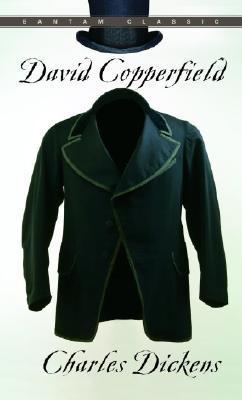It took over a month, but I finished listening to the audio version of Dickens’s David Copperfield. It now sits at the top of my list of all-time favourite books. As much as I enjoyed the reading experience, I also got a lot out of it as a writer. Yes, it’s long and dense and would probably be rejected by today’s publishing professionals. But there’s still lots to learn from this master of the English literature canon.
Here are three things I gleaned from Charles Dickens.
1) Readers will forgive almost anything if you tell a good story.
David Copperfield opens with this sentence:
“Whether I shall turn out to be the hero of my own life, or whether that station will be held by anybody else, these pages must show.”
Sentence two:
“To begin my life with the beginning of my life, I record that I was born (as I have been informed and believe) on a Friday, at twelve o’clock at night.”
In most cases, when a book starts at the moment of the protagonist’s birth, it’s a bad sign. A very bad sign. When I read the above sentences, I laughed. Aren’t writers supposed to start in media res?
When I stopped chuckling, I checked the length of my audio recording. Thirty-six and a half hours. Flip! Turns out the physical book has 800+ pages!
Lucky for me, I listened to Audible’s wonderful audio version performed by Richard Armitage of Thorin Oakenshield fame (The Hobbit, the films). Highly recommended. I can’t gush fast enough to convey how much I enjoyed his performance!
I loved every minute. So what if Dickens is long-winded? Who cares if he starts where no one (today) would dare start a story? He’s Dickens, and he did it well. Besides, there were legitimate plot reasons for starting at day dot.
The plotting in David Copperfield is heaps of fun. There were a few times when I yelled, “Get.Out!” and “NO! Not her again!” and “Yes!!” with an air punch. Admittedly, by the end I began to see the pattern of Dickens’s braided threads, but the payoffs were so rewarding that I didn’t mind that I could guess what happened next.
2. Tell the truth about the lies people tell themselves.
I can relate his 19th Century characters to my 21st Century friends. Seriously, those Micawbers—ever waiting for “something to turn up.” The pair of them reminded me of a couple I know. How did Dickens manage such timelessness? By slicing the human psyche into parts–the portrayed self and the true self. He observed that we all tell ourselves lies, and that sometimes we have no idea we’ve dabbled in falsehood and hoodwinked no one but ourselves.
He nailed the fact that everyone, even beloved David, is flawed and many-faceted. As a child, David was too trusting. As a young man, he was too enchanted by superficial beauty, yet he (eventually) grew into a principled, loyal man. Watching David come of age was a wonder, the nuances of every stage captured in tiny brushstrokes. I especially loved David’s late adolescence, when he felt awkward in his inexperience and youth. David burned with the shame at having no whiskers to shave off and with humiliation for paying for top-shelf brandy but being served the dregs.
Even the quintessential villain, Uriah Heep, is not pure evil. As villains go, he’s pretty darn bad, but he wuvs his mummy and looks after her as a good son should.
Dickens revelled in reminding his readers that there’s always more than meets the eye with humans. We behave in ways that belie our good intentions. We say one thing and do another. Or we think we have pegged someone’s character, only to find we’ve misjudged them most unfairly.
Take Betsy Trotwood, David’s kooky aunt, who is cantankerous to the point of rudeness, but she brims over with genuine compassion, quiet wisdom, and snarky wit. She surprised me right through the book.
3. Make your characters suffer—really suffer.
It’s easy to fall in love with Dickens’s books because he forces us to care about his characters. Then he toys with his readers’ emotions by tormenting the characters he’s made us love. He no sooner gives one a lollipop than he rips it away, throws it in the dust, and stomps it to smithereens. Except it isn’t a lollipop; it’s a deepest desire, an object of dire necessity. All good writers do this, but Dickens is the Maestro of pathos and comeuppance. He makes the reading experience like a radical roller coaster ride.
Dickensian Caveats
My biggest concern about reading Dickens is that the flowery style might be communicable. I know that I have a tendency to absorb the rhythm and style of what I read. I remember years ago after studying the King James version of the New Testament, the letters I wrote to my parents came out with a biblical cadence. It was scary. While I want to acquire the ^above^ lessons, I don’t want my writing to break out in a hideous purple rash.
So I’m thinking it might be a good idea to follow up David Copperfield with some sparse literature. Hemingway, maybe. Got any recommendations? Leave a prescription in the comments!


Leave a Comment